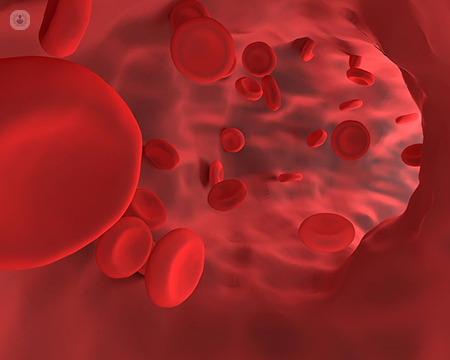Complete blood count (CBC)
What is being analysed?
A complete blood count (CBC) is a common blood test that provides valuable insights into the cellular components of the blood. It examines the quantity and quality of various blood cells, including red blood cells (RBCs), white blood cells (WBCs), and platelets.

When is it requested?
A complete blood count (CBC) is requested by healthcare providers for various reasons, including routine health check-ups, diagnosing medical conditions, monitoring ongoing treatments, assessing overall health status, and investigating symptoms such as fatigue, weakness, unexplained bruising, or prolonged bleeding.
Why perform the analysis?
A complete blood count (CBC) helps in the diagnosis and management of a wide range of medical conditions, including anaemia, infections, inflammatory diseases, bleeding disorders, and certain cancers. It provides crucial information about the body's immune system, oxygen-carrying capacity, and clotting ability.
When should the analysis be done?
A complete blood count (CBC) may be performed as part of a routine health check-up or when specific symptoms or medical conditions arise. Additionally, it is commonly ordered before surgical procedures or as a baseline assessment before initiating certain medications or treatments.
What sample is required?
A small sample of blood is typically collected from a vein in the arm using a needle and syringe. In some cases, a finger prick may be sufficient for obtaining a capillary blood sample, especially in paediatric or point-of-care settings.
Is any prior preparation necessary?
Generally, no special preparation is required for a complete blood count (CBC). However, it's essential to inform the healthcare provider about any medications, supplements, or medical conditions before the test, as certain factors may influence the results.
What are the normal values?
Below are the normal reference ranges for key components of a complete blood count (CBC):
|
Component |
Normal Range |
|---|---|
|
Red Blood Cells |
4.2 - 5.4 million cells/µL |
|
Hemoglobin |
12 - 16 grams/deciliter (g/dL) |
|
Hematocrit |
37% - 47% |
|
White Blood Cells |
4,500 - 11,000 cells/µL |
|
Platelets |
150,000 - 450,000/µL |
What does having altered values mean?
Altered values in a complete blood count (CBC) can indicate various medical conditions or abnormalities:
- Low red blood cell count (anaemia) may suggest iron deficiency, vitamin deficiencies, blood loss, or bone marrow disorders.
- High white blood cell count (leucocytosis) may indicate infection, inflammation, leukaemia, or other blood disorders.
- Low platelet count (thrombocytopenia) may increase the risk of bleeding and can be caused by conditions such as immune disorders, medications, or bone marrow disorders.
It's important to note that abnormal results should be interpreted by a healthcare professional in the context of the individual's clinical condition and other diagnostic findings.